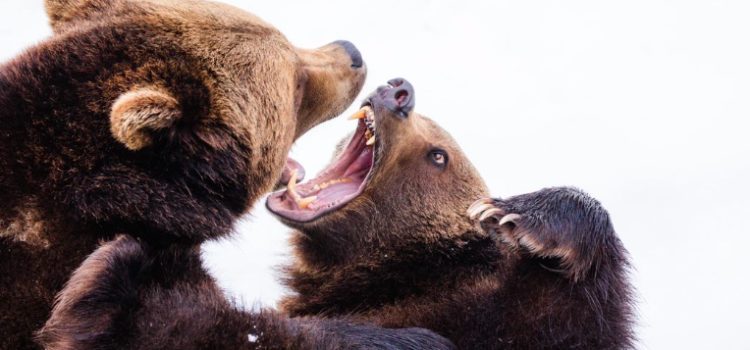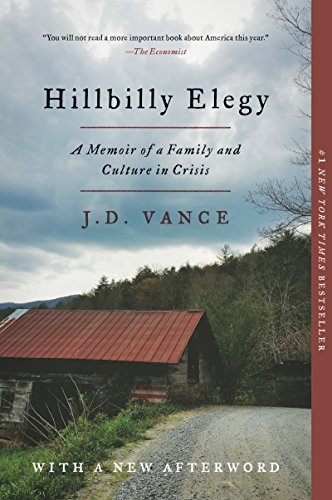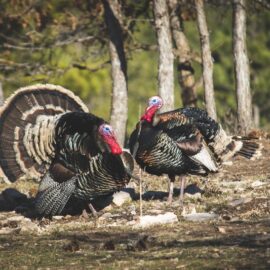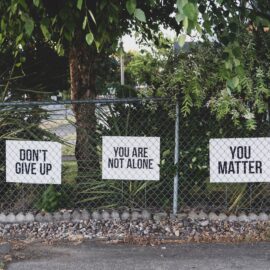

This article is an excerpt from the Shortform summary of "Hillbilly Elegy" by JD Vance. Shortform has the world's best summaries of books you should be reading.
Like this article? Sign up for a free trial here .
How are hillbilly fights different than others? Do hillbillies fight by a different set of rules? How is fighting built into the hillbilly culture?
We’ll cover some of the hillbilly fights in the life of JD Vance, author of Hillbilly Elegy, and look at how the region’s culture of honor encourages them.
Rules of Hillbilly Fights: Toy Store Brawl
In one illustrative example, Vance recounts a story that subsequently became family legend. His grandparents were in a department store in Middletown with their son when the boy started to play with one of the toys on display.
When the clerk asked the boy to put the toy down and leave the store, Papaw and Mamaw went berserk: smashing the merchandise and physically threatening the clerk, saying “If you say another word to my son, I will break your fucking neck.”
This display of violent anger and utter disregard for social norms was shocking to the Ohioans who witnessed the scene, but it was a matter of basic pride for Vance’s family. This was the norm for hillbilly fights. The parents were merely defending their son against a stranger who had slighted the family’s honor by telling him where he could and couldn’t go. This was just what any self-respecting hillbilly would do when an outsider messed with their child. This was obvious for those who followed the rules of hillbilly fights.
Shortform note: This scene of violence and anger in response to a relatively mild slight may have its roots in what historians and sociologists have called the “Southern culture of honor.” It’s characterized by an extreme unwillingness to tolerate personal insults of any kind and a high propensity, particularly on the part of males, to defend one’s reputation with violence.
Honor cultures are common in places where the rule of law and the control of centralized authorities have been historically weak: like the remote parts of the British Isles from which the hillbillies’ Scots-Irish ancestors came. These values were easily transplanted to the remote, rugged world of Appalachia. In turn, the hillbillies brought these values with them when they migrated to other regions of the United States. Cultures of honor are the foundation of hillbilly fights.
Hillbilly Justice Using Hillbilly Fights
This is illustrated quite vividly by JD’s early education in the concept of “hillbilly justice.” During visits with his grandparents back to Jackson, Kentucky (where they still maintained close ties of kin and community), JD would be regaled with stories of the legendary and lawless exploits of his extended family and the world they came from.
- One uncle had assaulted a truck driver with an electric saw because the driver had called him a “son of a bitch.” The man nearly bled to death.
- A man in Jackson who had been accused of sexually assaulting a young girl was once found face-down in a lake, shot to death with sixteen bullets in his back.
- Even Mamaw herself had, at the age of 12, shot an attempted cattle rustler in the leg.
These tales of hillbilly fights and violent vigilante justice were presented to JD as positive examples of his community’s values. Mamaw and the family were proud of these stories and believed they reflected the very best of their culture. As an adult, JD now sees how truly impressionable he was: his young mind internalized these values and he came to see violence and hillbilly fights as a legitimate and even honorable means of resolving disputes. This message would be reinforced by the people around him throughout his childhood and adolescence.
Learning Hillbilly Fighting
This social context encouraged—in fact, demanded—that a young man like JD enforce and uphold hillbilly justice himself and engage in hillbilly fighting. Loyalty to family, upholding one’s honor, and demonstrating toughness were the core values of this “justice” system.
Accordingly, casual insults to one’s family (especially its female members) demanded a violent response: when a schoolyard bully directed some slander at JD’s grandmother, JD earned a bloody nose defending his family’s honor on the schoolyard.
The social expectation was that young men should resort to violence to avenge any insult towards the family, whether the insult was intended or not. When his older sister Lindsay was dumped by her boyfriend, custom demanded that JD brawl with her ex to maintain the family’s dignity. Even though he proceeded to lose the hillbilly fight (badly), he was rewarded for his display of violence by Mamaw, who told him that he had done the correct and honorable thing.
Later, Mamaw would teach JD fighting tactics designed to inflict maximum damage on his opponents during a hillbilly fight. While she encouraged him to only fight to defend himself, she generally approved of the use of violence to solve disputes, telling JD, “Sometimes, honey, you have to fight, even when you’re not defending yourself. Sometimes it’s just the right thing to do.”
A “culture of honor” demands the resolution of disputes through violence or, at best, harsh verbal abuse. These modes of conflict resolution may work in the hillbilly culture, but they leave these people utterly unprepared for a life outside it.
———End of Preview———

Like what you just read? Read the rest of the world's best summary of "Hillbilly Elegy" at Shortform . Learn the book's critical concepts in 20 minutes or less .
Here's what you'll find in our full Hillbilly Elegy summary :
- The hallmarks of hillbilly culture and why they hold people back
- How JD Vance broke out of his hillbilly childhood and graduated from Yale
- Why the author thinks hillbillies might be beyond saving






